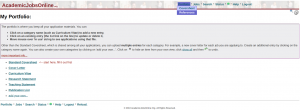Can non-US citizens apply?
Yes. There is no requirement of citizenship or permanent residence. Applicants must be enrolled in a US university physics PhD program.
Can a GIRA be combined with other fellowships?
No. The award is intended to support a student and double support is not allowed. Should an applicant be selected for a GIRA and also another fellowship or scholarship, the applicant should choose one and turn down the others.
Is there a proposal template or preferred format?
The preferred format for all documents is pdf. There is no required template for the proposal. The following outline can used a guidance, but following it is not mandatory. Please have a look at past winning proposal and honorable mentions for inspiration (left menu)
Can GIRA support be used after PhD graduation?
No. The award is valid only for enrolled students.
Can I apply before I start graduate school?
Technically yes, but this is not recommended because one may not take classes for credit during the award period. Applicants may only be selected for an award if it is clear that working on the project will be compatible with their coursework requirements.
Can part of the work be carried out outside the US?
Yes. While the project should be based in US labs or universities, it may require some work abroad, for example for tests at beam facilities, telescopes, etc. If work abroad is required in your proposal, please briefly explain why.
Do I need to request recommendation letters to be sent with my application?
No. You need to provide the name of two references (name and email address), that the panel may consult when making the shortlist.
Can I put down my mentor or lab partner as reference?
No. Your mentor and lab partner will already comment on your experience. For the reference, you need two additional people who will be able to comment on your proposal and experience.
Can a valid proposal involve simulation only, with no physical device test or fabrication?
Yes. Simulations are an integral part of detector development and it is possible for significant advances to be purely analytic or computer simulated. There is therefore no set requirement on the nature and tools of the proposed work. A guiding principle the selection panel will consider is how much the proposal would advance the state of the art in high energy physics instrumentation.
Can work on a construction or upgrade project form the basis of a proposal?
Yes. Please take care to indicate how the publication requirements under “Deliverables and Renewal” will be met, with “a significant fraction of original work”.
How is GIRA administered and who is running the selection? What is Fermilab’s role?
GIRA awards will be funded by DOE Office of High Energy Physics via Fermilab. The university of the award recipient will set up a subcontract with Fermilab and receive the funds that way. Additionally, Fermilab hosts the web site, but has no role in the selection. The applications will be reviewed by a selection panel convened by the Coordinating Panel for Advanced Detectors. The selection panel is identified on the main GIRA webpage. The panel will recommend the winner as well as honorable mentions directly to OHEP (see Award and Funding).
How to submit the mentor and lab partner letters? On the website it says letters must be submitted by the students… So does that mean I will need to add a file for each of these letters into the academicjobonline package? Or I should put their contact information on the coversheet?
These letters (or letter if mentor and lab partner are the same) should be uploaded directly to AJO by the mentor/lab partner. In your AJO profile select references from drop-down menu and enter their names and emails. Check the “email notify writer on submit” or “email again” box befor clicking submit:
